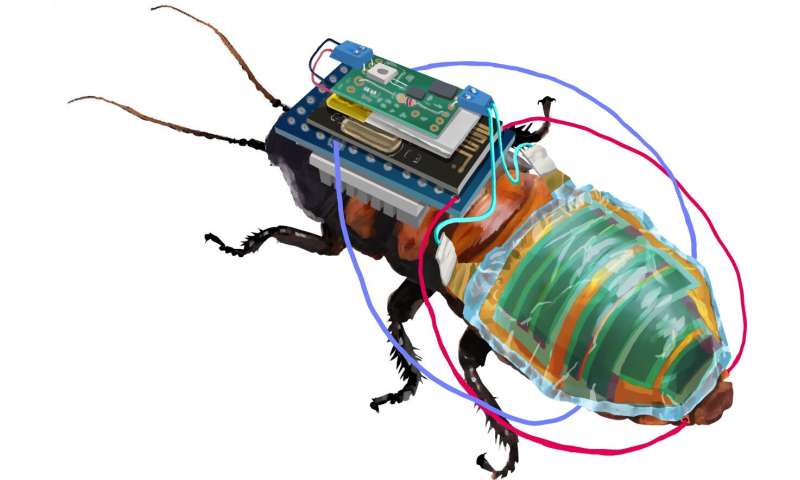Best of Last Week—Fossil evidence of early human hybridization, a cyborg cockroach, a new math formula

It was a good week for early human history studies as a team of archaeologists at the University of Oxford discovered monumental evidence of prehistoric hunting across an Arabian desert in the form of hunting structures known as kites in parts of southern Iraq and Saudi Arabia. And a pair of evolutionists, one with the Senckenberg Center for Human Evolution and Paleoenvironment at the University of Tübinge, the other the Human Evolution Research Institute at the University of Cape Town, investigated what fossils might reveal about the hybridization of early humans.
In technology news, an international team of engineers designed and built a rechargeable, remote-controllable cyborg cockroach. Called Robo-bug, the cyborg was created with the goal of one day putting them to work. Also, a team with members from the University of California, Berkeley, the Kavli Energy Nanosciences Institute, Beijing Institute of Technology, Shenzhen University and Tsinghua University, developed a new, laser-based chlorination process to create high doping patterns in graphene. And a combined team from Donghua University and the Jülich Center for Neutron Science developed a new kind of ionic skin—it is soft, fatigue-free and self-healing. Also, by pumping water through artificial fractures beneath the ground, a team at Princeton University found that geothermal energy could be an ideal energy storage technology.
In other news, researchers working independently on two clinical trials (one team was in the U.K., the other in Norway) found no link between people taking vitamin D supplements and a reduced risk of COVID-19. And a team with members from institutions in the U.S, the U.K. and Sweden took images of the seafloor off the West Antarctic Ice Sheet that threaten to upend scientists' understanding of the Thwaites Glacier retreat. Also, a team at Massachusetts General Hospital found that chronic use of e-cigarettes (vaping) can lead to the development of progressive small airway obstructions, leading to asthma-like symptoms. And finally, a team at the University of Bristol developed a new math formula that they say could transform medical procedures, the extraction of natural gas and the way that plastic packaging is produced.
© 2022 Science X Network